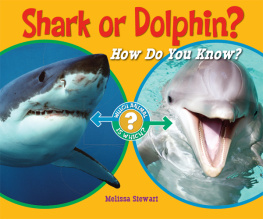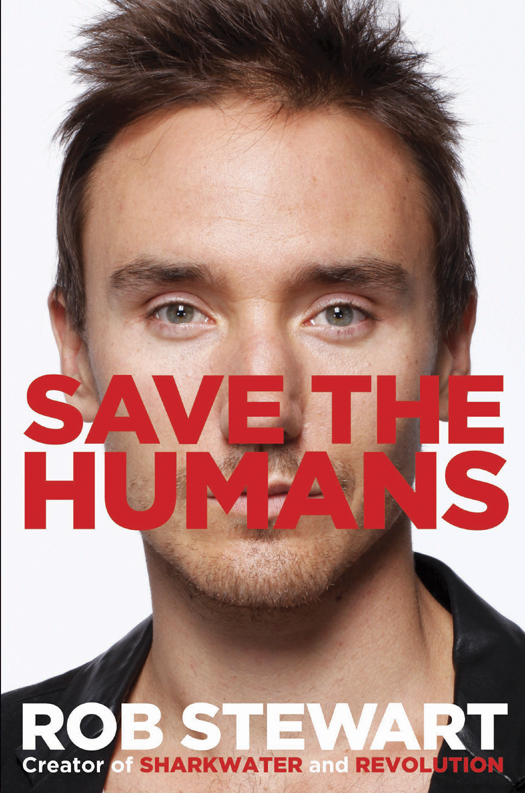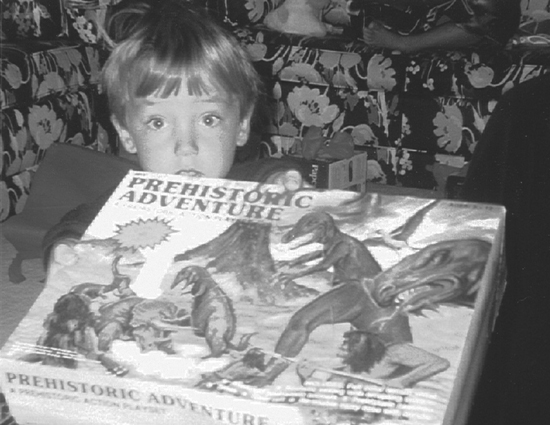PUBLISHED BY RANDOM HOUSE CANADA
Copyright 2012 Sharkwater Productions Inc.
All rights reserved under International and Pan-American Copyright Conventions. No part of this book may be reproduced in any form or by any electronic or mechanical means, including information storage and retrieval systems, without permission in writing from the publisher, except by a reviewer, who may quote brief passages in a review. Published in 2012 by Random House Canada, a division of Random House of Canada Limited, Toronto. Distributed in Canada by Random House of Canada Limited.
www.randomhouse.ca
Random House Canada and colophon are registered trademarks.
Library and Archives Canada Cataloguing in Publication
Stewart, Rob, 1979
Save the humans / Rob Stewart.
eISBN: 978-0-307-36009-0
1. Stewart, Rob, 1979. 2. EnvironmentalistsBiography. 3. Political activists Biography. 4. Environmentalism.5. Green movement. I. Title.
GE56.S74A3 2012 333.72092 C2011-905282-2
All interior photos courtesy of Rob Stewart and the Stewart family.
Cover photos: Richard Sibbald
v3.1
To my parents, my sister, Nana,
and everyone with a vision of a better world.
Contents
INTRODUCTION:
The Revolution to Save Humanity
CONCLUSION:
My Own Action Plan
Introduction
The Revolution to Save Humanity
As a kid , when I wasnt outside catching frogs, snakes, fish and lizards, I spent a lot of time imagining the animals I might eventually encounter, and even more time fantasizing about the things I wished I could have as pets. Ideally, I wanted a dragon. Thirty-five to seventy-five feet long, covered in impenetrable scales, capable of breathing white-hot streams of fire, tame for no one but me, badass as hellas a dragon obviously would be. Hours spent dreaming about what it would be like didnt get me any closer to owning one. A dinosaur would have been almost as cool but despite the fact theyd once walked the earth, the relative availability of a T. Rex or velociraptor was about equal to that of a dragon. When it came to real animals, the closest I could get in all of my imaginings to hunting alongside a dinosaur or riding on the back of a dragon was swimming with sharks.
When I was a kid, people knew very little about sharks. I read book after book and learned all the facts I could: approximate sizes of the different kinds of sharks, what experts thought they ate and where certain species could occasionally be found. The experts got most of their information from yanking sharks onto shore and studying their anatomy. But even the experts didnt know where sharks spent most of the year, how long they lived or where they mated.
There just arent that many T. Rexes around, so I had to make do with what I had.
The mystery that surrounded much of their lives leant itself to daydreamingthe details were mine to shade in. But the basic facts were irrefutable: like dragons, sharks were unbeatable predators, and like dinosaurs they ruled an entire world. It was an underworld we couldnt see and didnt understand, and they ruled it so well they terrified people. Friends, relatives, teachers and television all preached that we needed to fear the ocean because there were these creatures in it that got to decide what lived and died and they would rip any trespassers to pieces. The fact that everyone was afraid of sharks made them seem cooler to me. The cute and cuddly already had advocates and aficionados. Everybody loved pandas, elephants and tigers. They were spoken for. I gravitated towards anything weird, different or dark. From the moment I knew sharks existed, I loved them.
As I got older and my knowledge of sharks deepened, my fascination with them did as well. Sharks were the first creatures on the planet to develop jaws, more than 400 million years ago. People call them primitive eating machines, but theres nothing primitive about them. Sharks have two more senses than human beings. Like all fish, they have a lateral line that runs along their bodies and allows them to form a sensory impression of all of the movement that occurs around them: a full 360-degree picture or feeling or some kind of sense of their environment at all times. More amazing is sharks ability to detect electromagnetic fields. At first, I didnt know what an electromagnetic field was or what it meant that sharks could sense one, but it was clear to me that nothing could compete since nothing perceives the world the way sharks do. When I finally understood what that meant, my respect grew. Everything we perceive as mattertrees, ice cream, mountainsis actually energy, moving at a speed and arranged in such a way that makes it a tree or an ice cream cone or a mountain. Thats an idea that most of us can only grasp abstractly, but sharks feel it. They can feel the energy emitted by every living thing on the planet (and some dead things too).
How can an animal like that exist? An animal with two entire senses we cant even imagine; an animal that can keep replacing its teeth if they get broken or lost throughout its life, and that can birth genetic clones of itself in hard times. The level of sophistication is mind-blowing. Even individual shark scales are made of tiny little teeth called dermal denticles. As a shark passes through the water, each denticle creates a tiny vortex. Taken as a whole, all of these vortices create a slipstream around the sharks body, allowing it to move through the water with less friction than any other animal. They are the most hydrodynamic things the planet has ever seen.
Sharks evolved a form and a function that has seen them survive five major extinctions that wiped most life from the planet. Pretty much everything else has changed. Dinosaurs became birds and uncountable numbers of species have come and gone. Through it all, sharks have moved beneath the surface of the oceans, ruling the most important ecosystem on the planet. Theyve shaped the evolution of life in the oceans and, just like that, theyve shaped all of life on earth.
For an animal born into a world of sharks to survive, it had to be shark-testedits appearance, defence mechanisms, feeding habits, mating behaviours. As the top predator in the oceans, sharks drove evolution. Schooling behaviours, communication, camouflage and mimicry, poisonI think a lot of these things were adaptations to avoid sharks. Their rule of the oceans was challenged only briefly by ocean-going reptiles who were unfit to survive the mass extinctions. Ever since I first saw a picture of a shark, Ive believed they are the most perfect animals on the planet.
And then, when I was about nine years old, I met one.
Under water, even the best free divers seem clumsy and ridiculously out of place, and then you see a sharkthe thing youve been taught your whole life is going to rip you to shreds. You freeze. Its power is unbelievable. It swims without seeming to move any part of its body, barely using its tail for propulsion. Its so beautiful you forget to feel afraid. It makes eye contact. Its eyes are just like yours, big and round and open, and you watch it scanning you, figuring out what you are. Its like an alien, sensing you with two faculties you know nothing about, but theres something so familiar about it, too, as it contemplates you and considers its next move. Then its tail springs to lifeone hard swoop and its gone. Without its overpowering presence, your awe starts to dissipate and you realize















